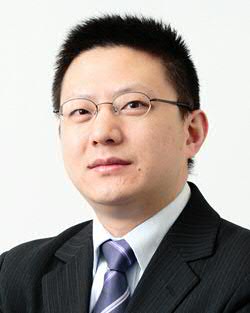Developing transistors with new electronic functionalities
The European Research Council has awarded Prof. Justin Ye of the Zernike Institute for Advanced Materials a Consolidator Grant of 2 million euros. Ye’s project represents an exciting new research field that is attracting the attention of many research groups around the world. He will develop electronic devices based on a tunable ion-gated interface for novel functionalities.

The transistors are not conventional ones. They are built by merging the disciplines of electrochemistry, solid state physics, and device physics. By combining newly synthesized ionic materials and a well-defined interface optimized by surface analysis techniques, the ion-gated device operates with very high efficiency so that quantum phases of superconductivity and ferromagnetism can be controlled and utilized as electronic functionalities.
Ye's research project, entitled "Ion-gated interfaces for quantum phase devices ', will run for 5 years. ERC Consolidator Grants are designed to support researchers at the stage at which they are consolidating their own independent research team or programme.
Profile page Justin Ye , Zernike Institute for Advanced Materials, Faculty of Science and Engineering (formerly known as the Faculty of Mathematics and Natural Sciences)
| Last modified: | 26 March 2020 4.10 p.m. |
More news
-
16 September 2025
The ocean absorbs carbon from the air, but what if the temperature increases?
‘Fortunately, seawater absorbs carbon dioxide (CO₂). If it didn’t, things would have been over and done with already,’ according to climate and ocean researchers Richard Bintanja and Rob Middag. But what actually happens to the ocean's carbon...
-
10 September 2025
Funding for Feringa and Minnaard from National Growth Fund project Big Chemistry
Two UG research projects have received funding from the National Growth Fund project Big Chemistry via NWO.
-
09 September 2025
The carbon cycle as Earth’s thermostat
Earth's natural carbon cycle becomes unbalanced if we, humans, continue to release extra carbon dioxide (CO2) into the atmosphere. In this overview article about the carbon cycle, you can find out how Earth generally keeps itself in balance and how...
